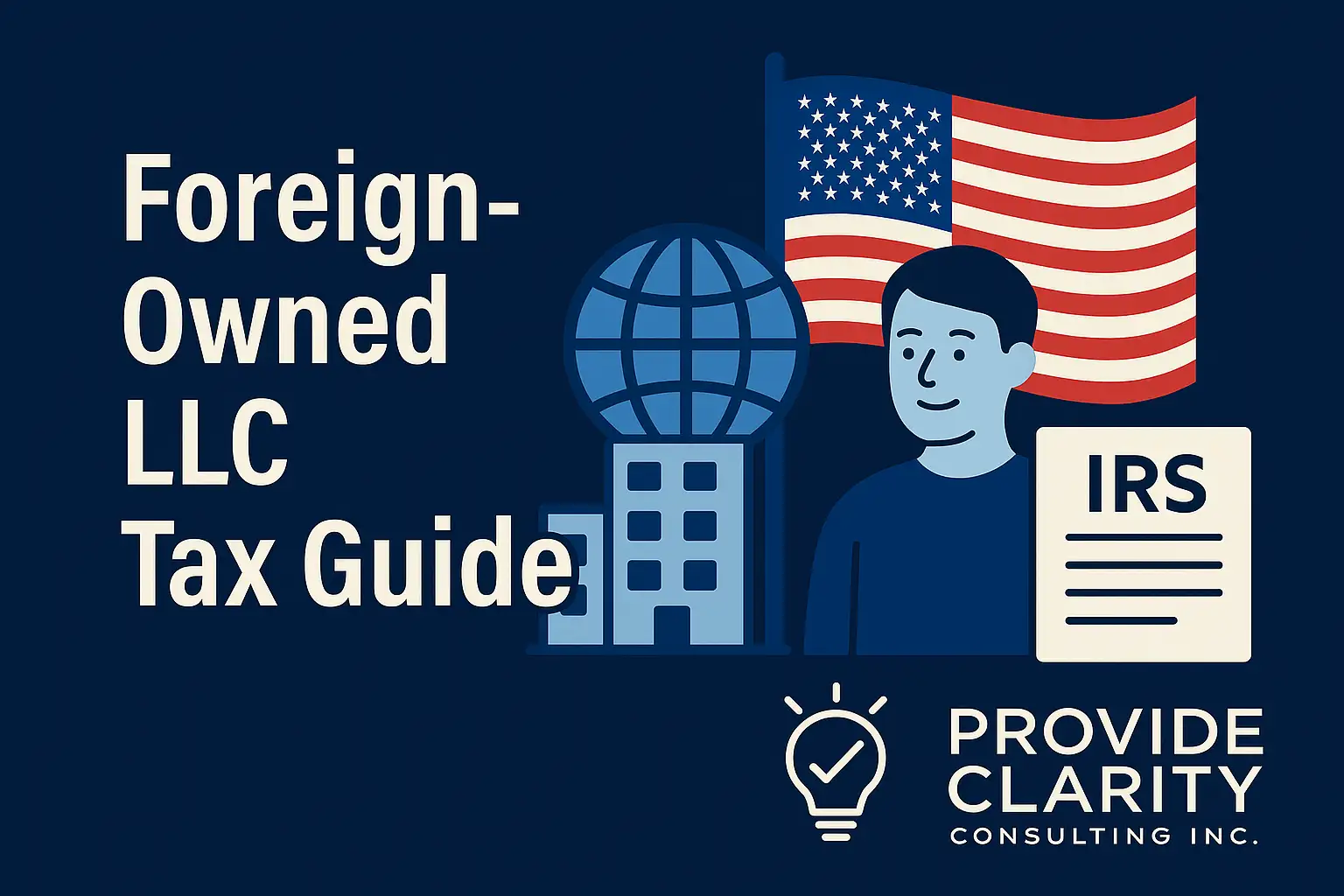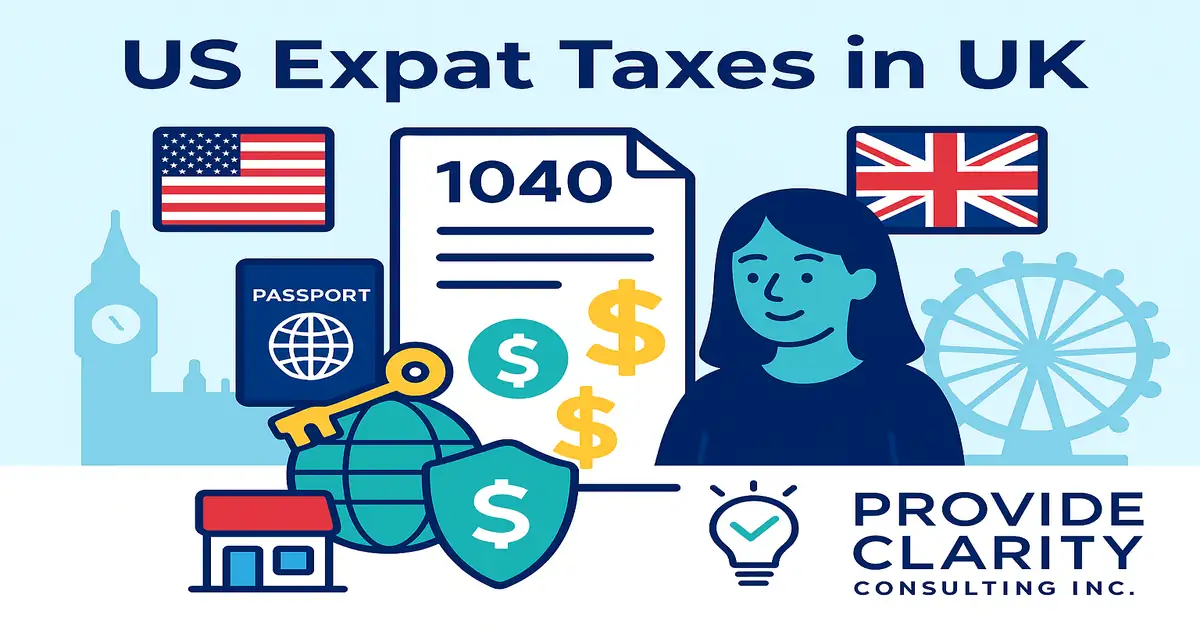Estimated Reading Time: 15 minutes
Key Takeaways:
- Foreign-owned U.S. LLCs have unique IRS tax obligations.
- Filing deadlines and requirements vary by LLC type.
- Failing to comply can result in severe penalties.
- Seek expert advice to navigate cross-border tax issues.
Table of Contents:
- Introduction
- How Are U.S. LLCs Taxed?
- Single-Member LLC vs Multi-Member LLC: What’s the Difference for Tax Reporting?
- IRS Default Classification vs Electing Corporation Tax Status
- Which IRS Forms Must Foreign-Owned U.S. LLCs File?
- Reporting Deadlines and Penalties for Missing Them
- Understanding Effectively Connected Income (ECI) and U.S. Source Income
- Withholding Tax Rules for Foreign Owners
- Common Compliance Mistakes and Penalties
- Banking and Operational Considerations for Foreign-Owned U.S. LLCs
- Practical Takeaways: How Can You Stay Compliant?
- Why Work with a Professional Cross-Border Tax Advisor?
- FAQ
Introduction: US LLC Owned by Non-US Person – Crucial IRS Tax Requirements Unveiled
If you are a non-U.S. individual owning or considering the ownership of a U.S. Limited Liability Company (LLC), you are stepping into a world of incredible business opportunity, but also complex tax reporting obligations. While U.S. LLCs are popular among entrepreneurs worldwide for their flexibility and legal protections, a US LLC owned by a non-U.S. person is subject to unique and often misunderstood IRS tax rules.
How Are U.S. LLCs Taxed?
The Internal Revenue Service (IRS) treats LLCs as “flow-through” entities by default. This means the LLC’s profits and losses typically “flow through” to the owners (members) instead of being taxed at the business entity level. However, the taxation of a US LLC owned by a non-US person depends on two main factors:
- The number of members (owners)
- Whether the LLC files an election with the IRS to be treated as a corporation
Single-Member LLC vs Multi-Member LLC: What’s the Difference for Tax Reporting?
Single-Member LLCs (SMLLC) – Disregarded Entities
If your US LLC has only one owner (you), it is considered a “disregarded entity”, which means:
- The LLC itself does NOT file a tax return in most cases.
- The foreign owner is required to report U.S.-source income generated by the LLC on their non-resident tax return (Form 1040-NR).
- LLCs owned by non-US persons performing any business in the U.S., or with U.S. source income, generally must file Form 5472 (discussed below).
Multi-Member LLCs – Partnerships
If there are two or more owners, the US LLC is treated as a partnership by default:
- The LLC must file an annual partnership tax return (Form 1065), detailing all income, deductions, gains, losses, and credits.
- Each member, including foreign individuals, receives a Schedule K-1 that documents their portion of the LLC’s income, which must be reported accurately.
IRS Default Classification vs Electing Corporation Tax Status
By default, as mentioned, single-member or multi-member LLCs are taxed as disregarded entities or partnerships, respectively. This can have significant U.S. income tax implications, particularly if the LLC conducts business in the U.S. or generates U.S.-source income.
Which IRS Forms Must Foreign-Owned U.S. LLCs File?
Form 5472 – Information Return of a 25% Foreign-Owned U.S. Corporation or a Foreign Corporation Engaged in a U.S. Trade or Business
Who must file? Foreign-owned, single-member U.S. LLCs engaged in business or with ANY reportable transactions (including capital contributions or loans) with their foreign owner or related parties.
Form 1065 – U.S. Return of Partnership Income
Who must file? Multi-member US LLCs taxed as partnerships, even if owned exclusively by foreign persons, must file Form 1065.
Reporting Deadlines and Penalties for Missing Them
Filing Deadlines:
- Form 5472 + 1120: April 15 for most calendar-year LLCs (extensions available via Form 7004).
- Form 1065: March 15 for most calendar-year filers.
- Form SS-4 (EIN): As soon as possible after LLC formation.
Understanding Effectively Connected Income (ECI) and U.S. Source Income
What Is ECI? Effectively Connected Income (ECI) is income “effectively connected” with conducting a trade or business in the United States. ECI is taxed at the same graduated rates as for U.S. persons and must be reported by the foreign owner on Form 1040-NR.
Withholding Tax Rules for Foreign Owners
FDAP Income – 30% Withholding
FDAP stands for Fixed, Determinable, Annual, or Periodical Income (like interest, dividends, rents, royalties, etc). By law, U.S. “withholding agents”, often the LLC itself, must withhold 30% of such payments to foreign owners unless a relevant U.S. tax treaty reduces the rate.
Common Compliance Mistakes and Penalties
Operating a US LLC owned by a non-US person can trigger several common pitfalls:
- Neglecting to file Form 5472 (or filing incorrectly).
- Not obtaining an EIN timely.
- Misclassifying the entity for tax purposes.
- Failing to file partnership returns (Form 1065) for multi-member LLCs.
Banking and Operational Considerations for Foreign-Owned U.S. LLCs
Setting Up U.S. Banking
EIN is mandatory: Banks require an EIN to open a company account.
Practical Takeaways: How Can You Stay Compliant as a Foreign Owner of a U.S. LLC?
Apply for an EIN immediately using Form SS-4 so you can meet all federal, state, and banking requirements.
Why Work with a Professional Cross-Border Tax Advisor?
The U.S. tax and compliance framework is complicated for domestic businesses, but it’s even more so for a US LLC owned by a non-U.S. person. IRS rules change regularly, and penalties for noncompliance are often massive.
FAQ
1. What are the key IRS forms for foreign-owned U.S. LLCs?
Form 5472, 1065, 1120, and 1040-NR.
2. How can I avoid IRS penalties for my U.S. LLC?
File all necessary forms by the due dates and consult with a cross-border tax advisor.




